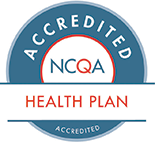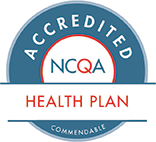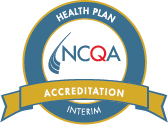Glossary
A B C D E F G H I J K L M N O P Q R S T U V W X Y Z
This alphabetical glossary of terms is available to help you better understand some common health insurance terms.
Adjudication: The process by which a claim is processed to verify coverage eligibility, determine appropriateness of care and services rendered, and establish the amount of reimbursement. Adjudication ranges from fully automated to partially automated to fully manual.
Adjustment: The change in the payment amount to a healthcare provider when a claim is processed.
Administrative Services Only (ASO): An arrangement between an employer and insurance company (or third–party administrator) to provide administrative services to the employer’s workers (such as the processing of claims, financial analysis or communication of benefits to employees). The employer is responsible for paying the cost of the healthcare service provided. This is a common arrangement when an employer pays for all healthcare treatment (self–insured) and needs a separate organization to handle the administrative paperwork and management.
Assignment: The process whereby a patient requests a third–party payer to forward payment for a covered service on his or her behalf directly to the physician or other provider of that service.
Beneficiary: The term for a person who has healthcare insurance through the Medicare or Medicaid programs.
BenefitHelp Solutions: BenefitHelp Solutions is a subsidiary of Moda Health that provides a wide range of third–party administrative services.
Benefit package: A collection of specific services and treatments to which a patient is entitled under the terms of his or her individual insurance policy or group policy through an employer.
Commuter Employee Reimbursement Account (CERA): A benefit plan offered by some employers which allows employees to use before tax dollars for commuter costs by using CERA. CERA was authorized by Section 132 of the Internal Revenue Code.
Center for Medicare and Medicaid Services (CMS): The federal agency responsible for operations and oversight of Medicare and Medicaid programs. Up until July 2001, CMS was Health Care Financing Administration (HCFA).
Coordination of Benefits (COB): A typical insurance provision whereby responsibility for primary payment for medical services is allocated among carriers when a person is covered by more than one employer–sponsored health benefit program.
Consolidated Omnibus Budget Reconciliation Act (COBRA): COBRA gives workers and their families who lose their health benefits the right to choose to continue group health benefits provided by their group health plan for limited periods of time under certain circumstances such as voluntary or involuntary job loss, reduction in the hours worked, transition between jobs, death, divorce and other life events.
Coinsurance: A percentage of allowable charges for which the patient is responsible.
Copayment (copay): The insured patient’s share of the total bill, usually expressed as a specific dollar amount paid for a given service, product or treatment — for example, the patient might pay $10 for each visit to a doctor’s office, or $40 for hospitalization. The patient is usually responsible for payment at the time of the treatment or service. The terms copayment and coinsurance are often used interchangeably despite their difference in meaning.
Cost sharing: The requirement that a patient covered by a health insurance plan pay some portion of the total cost of medical care. Cost sharing can take the form of coinsurance, copayments and/or deductibles.
Covered services: As spelled out in the health insurance plan or policy, these are services that the healthcare provider must offer to an insured employee or individual policyholder at no charge other than the applicable copayment or deductible.
Current Procedural Terminology (CPT): The coding system for physicians’ services developed by the American Medical Association. It forms the basis of the HCFA Common Procedural Coding System, used to identify specific treatments and services on paper and electronic bills. The CPT codes are the standard for billing for physician and other professional services and also are used for procedure identification purposes. These five–digit codes permit the comparison of physician services data on a national basis.
DAISY: Practice management software for dental offices provided by Dentists Management Corporation (DMC), a Moda Health subsidiary.
Deductible: The portion of an individual’s applicable healthcare expenses that must be paid by the member in a given year before the insurance plan will start paying for treatment.
Dentists Benefits Insurance Company (DBIC): DBIC provides property, professional liability and other insurance coverage to dentists. DBIC is a subsidiary of Moda Health.
Dentists Management Corporation (DMC): DMC provides dentists with office products and services that enhance their ability to successfully manage their practices. DMC offers hardware and digital solutions as well as innovative practice management backed by single–source customer support. It is a subsidiary of Moda Health.
Discounted fee–for–service: A financial reimbursement process whereby a physician’s services are provided to patients on a fee–for–service basis, but at a rate negotiated with the insurer or employer that is lower than the usual fee the physician charges for the same services.
Durable Medical Equipment (DME): Equipment and related supplies that primarily help members manage a medical condition. DME includes things like breast pumps, CPAP, wheelchairs, walkers, oxygen, and diabetic or ostomy supplies. They are durable because they last a long time. Plans may cover the rental charge for DME (but not exceed the purchase price). Members can work with their provider to order their prescribed DME.
Electronic data interchange: The electronic transmission of business data by means of computer–to–computer exchange (either real–time or batch).
Electronic funds transfer: The paperless exchange of money through electronic data interchange.
Eligibility: The determination of whether an individual has insurance coverage. The answer may depend on who the provider is or the types of services suggested.
Employee contributions: The premium or amount an employee must contribute toward the cost of the insurance plan.
Employee Retirement Income Security Act (ERISA): ERISA sets forth federal requirements for private pension plans.
Employer Online Services (EOS): EOS allows group administrators direct access to Moda Health's eligibility system.
Enrollment: Information confirming that an individual is enrolled in a health insurance plan.
Explanation of Benefits (EOBs): The statement sent to covered persons and/or their healthcare provider by their health plan (insurance company or third–party administrator) listing services provided, amount billed and payment made for a specific treatment.
Fee–for–service (FFS): Patient fees are charged based on a rate schedule established for each service and/or procedure provided. The medical provider receives payment for each service delivered.
Filed fees: The fee charged to a dentist’s patients for a given service. Each participating dentist must complete the Confidential Survey of Charges form to file their fees.
Flexible Spending Accounts (FSA): Flexible Spending Accounts allow employees to set aside money on a pre–tax basis to pay for eligible healthcare and dependent care expenses.
Health Insurance Portability and Accountability Act of 1996 (HIPAA): The HIPAA Privacy Rule provides federal protections for personal health information held by covered entities and gives patients an array of rights with respect to that information. At the same time, the Privacy Rule is balanced so that it permits the disclosure of personal health information needed for patient care and other important purposes.
Health Reimbursement Arrangement (HRA): HRAs are typically offered to employees enrolled in a high–deductible healthcare plan. HRAs must be employer–funded and can be used to pay for qualified copayments, deductibles and other medical expenses not covered by a health plan.
Health Savings Account (HSA): Health Savings Accounts (HSAs) were created by the Medicare Prescription Drug, Improvement and Modernization Act of 2003, and are designed to help individuals save for future qualified medical and retiree health expenses on a tax–free basis. With an HSA, members can pay for insurance deductibles, coinsurance and other out–of–pocket expenses not covered by health plans, such as Lasik eye surgery or orthodontia, with tax–free dollars. To be eligible, you must have insurance coverage through a qualifying high–deductible health plan, and a HSA must be opened with a qualified trustee such as a banking institution.
HMO–group or network model: A healthcare delivery model involving contracts with physicians organized as a partnership, professional corporation or other association. The health plan compensates the medical group for contract services at a negotiated and capitated rate, and that group is responsible for compensating its physicians and contracting with hospitals for care of their patients.
HMO–staff model: This HMO plan employs physicians to provide healthcare to its insured patients. All premiums and other revenues accrue to the HMO, which compensates physicians by salary and incentive programs.
Incurred But Not Recorded (IBNR): Refers to claims in which services have incurred but the claims have not reached the Moda Health system yet. (The lag time for this can be up to two months.)
Indemnity insurance: The traditional healthcare insurance policy in which an insured patient receives treatment from any provider of his or her choosing and the cost is covered by the insurer at an agreed–upon percentage less a deductible or copayment, if any. Payments may be made to the individual incurring the expense or, in many cases, directly to providers.
International Classification of Diseases, 9th Revision (ICD–9CM): Codes used to classify patient treatment at hospitals. Medicare requires use of the codes for providers who bill for both inpatient and ambulatory care, as well as itemized billing statements.
Medicare Advantage (MA): Medicare Advantage is one of four Part C (Coordinated Care) plans offered to Medicare enrollees by plans that have a contract with CMS. A Medicare Advantage plan (formerly called a M+C or Medicare + Choice plan) can be a Point–of–Service, HMO or PPO type plan. Medicare Advantage plans are regulated by CMS. Members of a Medicare Advantage plan receive all of their Medicare benefits through the MAplan and not through original Medicare.
Managed care: Use of a planned and coordinated approach by insurers and providers alike to offer quality healthcare services at a lower cost. Managed care typically emphasizes preventive care, and may include pre–certification or utilization review. In general, managed care refers to a means of providing healthcare services within a defined network of healthcare providers who are given the responsibility to manage and provide quality, cost–effective healthcare.
Managed care organization: Refers to any type of organization providing managed care, such as an HMO, PPO or EPO.
Managed competition: A health insurance concept that brings employers, labor groups and others into purchasing groups. Employers and other collective purchasers pay the cost of insurance for the individuals they represent.
Medicare Advantage Prescription Drug (MAPD): MAPD, also known as Part D, is the Medicare Prescription Drug program implemented as part of the Medicare Modernization Act (MMA). Part D is voluntary. A Medicare enrollee with Part A, Part B or both may enroll in a Part D plan.
Medicaid: The U.S. government healthcare insurance program that is extended to all U.S. residents earning below the poverty income level. The plan is administered by each state’s government, which also shares the cost of insurance with the federal government.
Medically necessary: Those services and supplies that are required for diagnosis or treatment of illness or injury and that, in the judgment of Moda Health, are: appropriate and consistent with the symptoms or diagnosis of the enrollee’s condition; appropriate with regard to standards of good medical practice in the area in which they are provided; not primarily for the convenience of the enrollee or a physician or provider of services or supplies; and the least costly of the alternative supplies or levels of service that can be safely provided to the enrollee. This means, for example, that care rendered in a hospital inpatient setting is not medically necessary if it could have been provided in a less expensive setting, such as a skilled nursing facility or by a nurse in the patient’s home without harm to the patient. Medically necessary care does not include custodial care.
Minimum premium: This funding arrangement works similarly to an ASO contract with aggregate stop loss. Two rates are calculated, the minimum premium (fixed costs) and the maximum claims liability. Each month the group will be billed for its minimum premium plus the prior month’s claims. However, the claims are capped at the maximum claims liability. Any claims in excess of the maximum claims liability are carried forward.
Member Dashboard: A member’s personalized website. In Member Dashboard, members can view claim status, benefit information and Member Handbooks as well as access Moda Health Be Better tools to help them manage their health.
National Correct Coding Initiative (NCCI): CMS developed the NCCI to promote national correct coding methodologies and to eliminate improper coding. CCI edits are developed based on coding conventions defined in the AMA’s CPT Manual, current standards of medical and surgical coding practice, input from specialty societies and analysis of current coding practice.
Oregon Medical Insurance Pool (OMIP): Two groups of people are eligible for individual coverage in this pool: those declined for individual coverage from one of the carriers in the state, or someone coming off of group plan coverage in Oregon where portability is not an option, such as with an Administrative Services Only (ASO) group.
Out–of–pocket maximum: A specified amount of applicable claims expenses in a calendar year that must be met before benefits are paid in full. Once members have met their out–of–pocket maximum, the plan begins covering eligible expenses at 100 percent.
Out–of–pocket payments: Patient payments to providers for services not covered by a third–party payer.
Moda Health Be Better tools: Tools and personalized health support to help members improve their health. Moda Health Be Better tools can be accessed by logging into Member Dashboard.
Payer: An entity that pays for healthcare services given to insured patients (i.e., an insurance company).
Point–of–service plan (POS): This plan is also referred to as an open–ended HMO and offers insured patients coverage features that are found in both HMO and PPO plans. Beneficiaries are typically enrolled in an HMO but, as with a PPO, have the option to seek treatment outside of the HMO network for an additional cost.
Preferred provider: A provider contracted within a network. By choosing a preferred provider, members’ out–of–pocket expenses will be less than if they choose a provider outside the network.
Preferred Provider Organization (PPO): PPOs are entities through which employer health benefit plans and health insurance carriers contract to purchase healthcare services for covered patients from a selected group of participating providers. Typically, participating providers in PPOs agree to abide by utilization management and other procedures and also agree to accept reimbursement structures and payment levels set by the PPOs. Providers under such contracts are called “preferred providers.” Usually, the insured patient pays significantly lower out–of–pocket costs for services when he or she is treated by a preferred provider than when visiting a provider outside the network, which encourages the patient to seek care within the network. In a PPO, providers are usually paid on a discounted “fee–for–service” basis.
Primary care physician (PCP): This type of physician provides treatment for routine injuries and illnesses and focuses on preventive care.
Provider: Any entity or professional that gives patient care, such as a hospital, doctor or rehabilitation center.
Provider disbursement register (PDR): A statement sent to providers that outlines how a payer adjudicated a claim and paid for services. A payer may use an electronic remittance advice (ERA) to advise providers.
Public Employee Retirement System (PERS): State of Oregon employee health insurance program.
Self–funding: A method of financing health coverage in which employers fund benefit plans from their own resources without purchasing insurance. Such plans may be self–administered, or the employer may contract with a third–party administrator and insurance company for administrative services only.
Self–insured program: A program in which an employer agrees to accept the financial risk related to providing healthcare to its employees and is expected to pay for all medical care by itself. The opposite of this is an insured program, in which the risk is borne by a third party, such as an HMO or other type of insurance plan, that agrees to accept the risk for a fee or premium.
Speed E Rates: An online quoting system through which producers can obtain rates for groups with two to 25 employees.
Subscriber: Covered employee.
Third–Party Administrator (TPA): An administrative organization, other than the employee benefit plan or healthcare provider, that collects premiums, pays claims and/or provides administrative services to providers, provider networks, employers or other groups of insured patients. BenefitHelp Solutions is a third–party administrator.
Questions?
If you can't find an answer, please feel free to contact our Customer Service Customer Service Customer Service
Questions?
If you can't find an answer, please feel free to contact our Customer Service
Employer web tools
Benefit Tracker
Check benefits, eligibility, incentive and utilization
Rate finder is now in the Producer Dashboard
Log in with your current username and password to create quotes for groups up to 50.
Producer DashboardLog in






Hello.
We have exciting news to share. ODS is changing its name to Moda Health.
Moda comes from the latin term "modus" and means "a way". We picked it because that's what we are here to do: help our communities find a way to better health.
Together, we can be more, be better.
Please select the state you live in, or the state where your employer is headquartered, so we can tailor your experience:

Hello.
Please select the state you live in, or the state where your employer is headquartered, so we can tailor your experience:
Privacy notice
We use cookies and similar analytics technologies to understand how visitors interact with our website, improve performance, and enhance user experience. These tools help us analyze traffic patterns and usage trends.
We do not collect or store personal information, track users for advertising purposes, or use social media plugins.
By continuing to use this site, you acknowledge our use of cookies for analytics purposes only. For more information, please refer to our Privacy Policy.
Changing your location to Oregon
You can return to your previous location in the site header.

